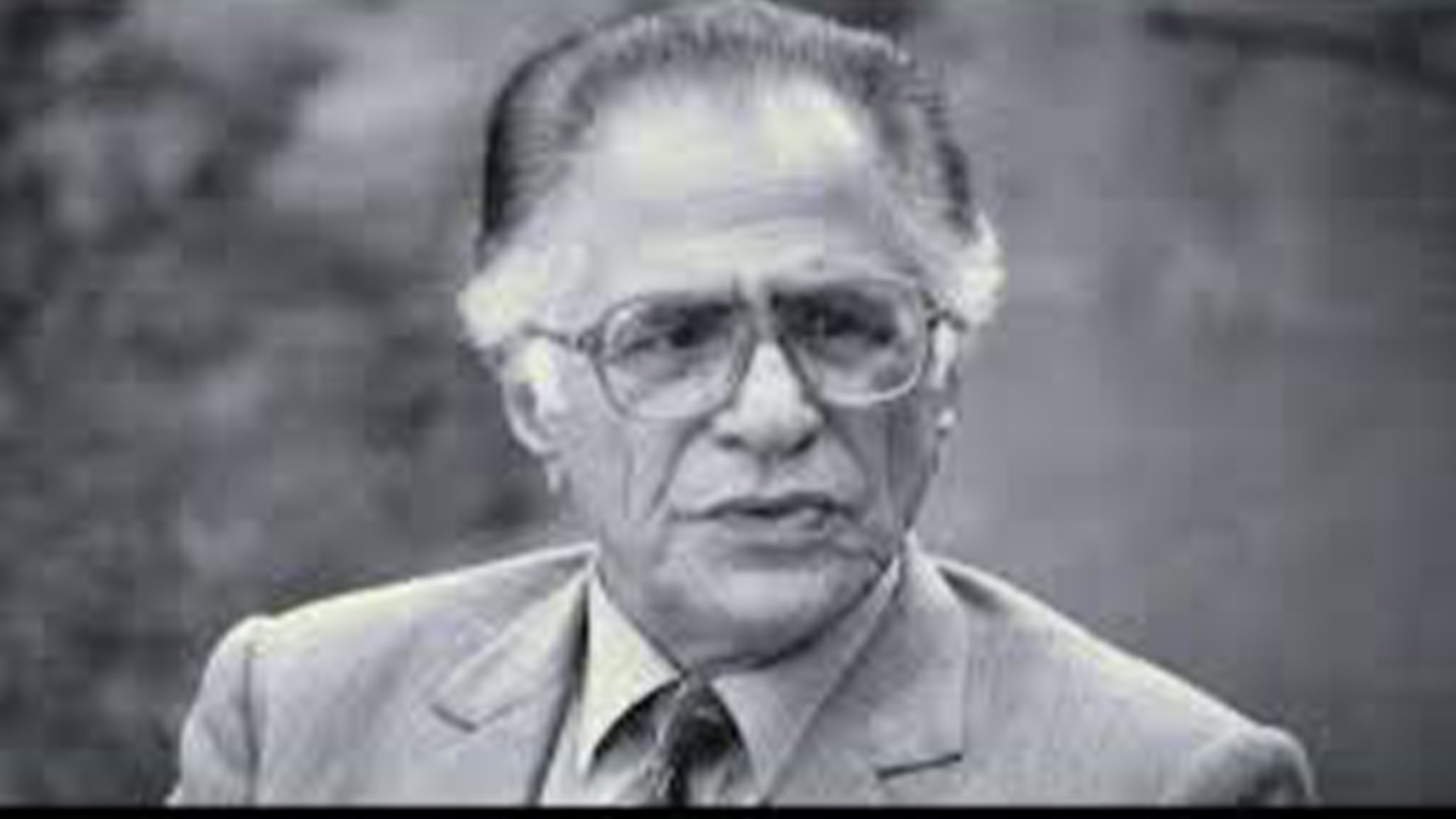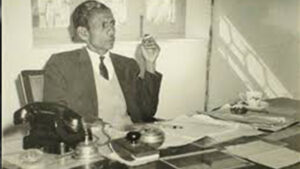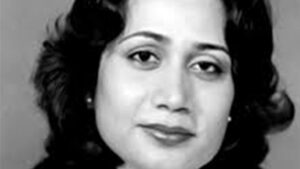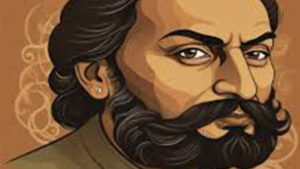Early Life and Contributions
Ahmad Nadeem Qasmi (Urdu: احمد ندیم قاسمی), born Ahmad Shah Awan (Urdu: احمد شاہ اعوان) on 20 November 1916, was a renowned Pakistani poet, journalist, literary critic, dramatist, and short story writer. Over his illustrious career, Qasmi authored 50 books spanning poetry, fiction, criticism, journalism, and art, cementing his status as a pivotal figure in contemporary Urdu literature.
Distinguished Literary Style
Qasmi’s poetry was deeply rooted in humanism, resonating with universal themes of compassion and empathy. His Urdu afsana (short story) work is celebrated for its vivid portrayal of rural life and culture. Many consider his contributions to this genre second only to the legendary Munshi Premchand.
Editorial Legacy
For nearly 50 years, Qasmi served as the editor and publisher of the esteemed literary magazine Funoon. Through this platform, he nurtured countless writers and poets, leaving an indelible mark on Urdu literature.
Awards and Recognition
In recognition of his literary achievements, Qasmi was honored with prestigious awards, including the Pride of Performance in 1968 and the Sitara-e-Imtiaz in 1980.
Mentor to Modern Writers
Gulzar, one of India’s most influential modern writers, regarded Ahmad Nadeem Qasmi as his mentor and guru, further highlighting Qasmi’s lasting impact on the literary world.
Qasmi’s profound contributions to Urdu literature continue to inspire and shape generations of writers and readers alike.
Personal life
Background of Ahmad Nadeem Qasmi
Early Life and Education
Ahmad Nadeem Qasmi was born on November 20, 1916, in the village of Anga, located in the Khushab District of British India, into an Awan family. His early education began at a high school in Campbellpur (now Attock city, Pakistan), where he wrote his first poem in 1931. He continued his studies at Government College, Attock, before enrolling at Sadiq Egerton College in Bahawalpur. In 1935, he graduated from the University of Punjab, Lahore, marking the beginning of his intellectual and literary journey.
Family
Qasmi had a brother, Peerzada Mohammad Bakhsh Qasmi, and a sister, both of whom were close to him during his formative years.
Progressive Writers’ Movement
Deeply committed to social justice and literary innovation, Qasmi became an active member of the Progressive Writers’ Movement, serving as its secretary. His association with the movement led to multiple arrests during the politically turbulent 1950s and 1970s, reflecting his unwavering dedication to progressive ideals and humanistic values.
This background shaped Qasmi’s profound literary voice, one that resonated with themes of humanity, social awareness, and rural culture.
Death
Ahmad Nadeem Qasmi passed away on 10 July 2006 due to complications from asthma. He breathed his last at the Punjab Institute of Cardiology in Lahore, leaving behind an enduring legacy in Urdu literature.
Literary career
Literary Contributions and Mentorship
Editorial Endeavors
Ahmad Nadeem Qasmi edited several renowned literary journals, such as Phool, Tehzeeb-i-Niswaan, Adab-i-Lateef, Savera, Naqoosh, and his own magazine Funoon. He also served as the editor of the Urdu daily Daily Imroze and contributed weekly columns to national newspapers like Rawan Dawan and Daily Jang for decades. His poetry encompassed both traditional ghazals and modern nazms, reflecting his versatile literary style.
Leadership in Progressive Movements
In 1948, Qasmi was appointed as the secretary-general of the Punjab chapter of the Anjuman-e-Taraqqi Pasand Musannifeen (Progressive Writers’ Movement). A year later, in 1949, he became the secretary-general for Pakistan, furthering the cause of progressive literature.
Establishment of Funoon
In 1962, Qasmi launched his literary magazine Funoon, supported by luminaries such as Khadija Mastoor, Hajra Masroor, Ahmed Faraz, Amjad Islam Amjad, Ata ul Haq Qasmi, and Munnu Bhai. Through Funoon, Qasmi nurtured countless creative voices and contributed significantly to Urdu literary publishing.
Mentorship
Qasmi was dedicated to mentoring emerging writers and poets. He guided Parveen Shakir, who went on to become one of Pakistan’s most beloved poets. His efforts in nurturing talent extended to fostering a vibrant literary community.
Role in Majlis-Taraqee-Adab
In 1974, Qasmi was appointed as the secretary-general of the Majlis-Taraqee-Adab, a literary organization established by the government of West Pakistan in 1958 to promote Urdu literature.
Legacy and Controversies
Tributes and Criticism
In December 2011, a seminar on Ahmad Nadeem Qasmi’s life and achievements was organized by Professor Fateh Muhammad Malik and columnist Ata ul Haq Qasmi at the International Islamic University, Islamabad. While his work was widely admired, Qasmi’s personality and writings were not without criticism.
Rivalries and Ego
According to Fateh Muhammad Malik’s book Nadeem Shanasi, Qasmi’s letters hinted at a concealed rivalry with Faiz Ahmed Faiz, whom he allegedly tried to belittle, often considering himself a superior poet. Malik also highlighted Qasmi’s narcissistic tendencies and his inflated ego concerning his contemporaries. Rivalries between Qasmi, Wazir Agha, and Munir Niazi were also noted in literary circles.
Example of Ahmad Nadeem Qasmi’s Poetry
Original Verse
Dawar-e hashr! mujhe teri qasam
Umr bhar mein ne ibadat ki hay
Tu mera namaa-e-amaal tau dekh
Mein ne insaan se mohabbat ki hay
Translation
O Lord of the Day of Judgment,
I swear by You,
I have worshipped all my life.
Look at my balance sheet—
I have loved mankind.
This verse beautifully encapsulates Qasmi’s humanistic philosophy, reflecting his lifelong devotion to humanity and his unwavering belief in the power of love and compassion.
Bibliography
Poetry
Ahmad Nadeem Qasmi’s contributions to Urdu poetry are both vast and profound. Some of his notable poetic works include:
- Jalal-o-Jamal
- Shola-i-Gul
- Kisht-i-Wafa
- Dasht-e-Wafa
- Dawam
- Muheet
- Loh-e-Khaak
- Baseet
- Jamal
- Arz-o-Sama
His poetry reflects themes of love, humanism, and a deep connection to nature and the human condition.
Short Stories
Qasmi’s short stories are equally celebrated, showcasing his mastery in exploring rural life and societal issues. Among his prominent collections are:
- Afsaanay (A selection of 40 best short stories curated by Qasmi himself)
- Chaupaal (1939)
- Gandasa (The inspiration behind the legendary character Maula Jatt and the 1979 film Maula Jatt)
- Sannata
- Kapaas ka Phool
- Aabley
- Tuloo-O-Gharoob
- Sailab-o-Gardab
- Aanchal
- Ghar se Ghar Tak
- Nila-Pathar
- Dawam-dar-o-deewar
- Bazar-e-Hayat
- Aas-Paas
- Jhoota
- Bhoot
- Jalebis
His afsanas (short stories) are considered some of the finest in Urdu literature, second only to those of Munshi Premchand, for their vivid depiction of rural life and cultural nuances.
Awards and Recognition
Ahmad Nadeem Qasmi’s literary excellence was recognized through numerous prestigious awards:
- Pride of Performance Award by the President of Pakistan in 1968
- Sitara-i-Imtiaz (Star of Excellence) Award by the President of Pakistan in 1980
- Lifetime Achievement Award by the Pakistan Academy of Letters
Additionally, Islamabad’s 7th Avenue has been named after him, commemorating his enduring impact on Urdu literature.



